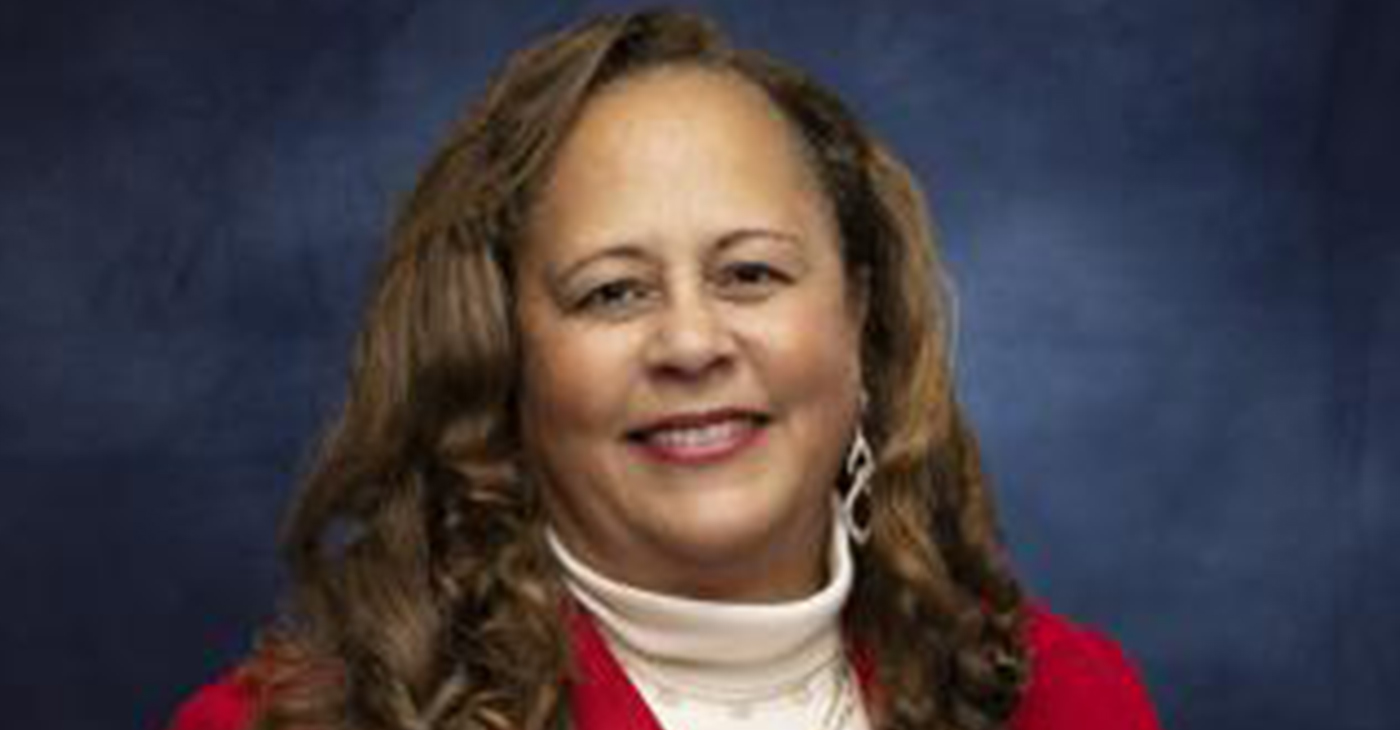Politics
In Wake of Riots and Crime Spike, Baltimore Mayor Under Fire

In this photo taken Tuesday, July 21, 2015, Baltimore Mayor Stephanie Rawlings-Blake, center, speaks with residents outside of vacant homes before a ceremony to kick off their restoration in Baltimore. (AP Photo/Patrick Semansky)
JULIET LINDERMAN, Associated Press
BALTIMORE (AP) — Baltimore Mayor Stephanie Rawlings-Blake climbed onto the deck of an abandoned row house in Tuesday’s sweltering summer heat and promised that “better is coming” as she promoted the restoration of a blighted block not far from where riots broke out earlier this year.
In another year or so, the three-story brick shell of a building, one of nine vacant houses on the block in Reservoir Hill, should be ready for new tenants, thanks to a $4.6 million rehabilitation initiative. The neighborhood also is getting a new public school, part of the city’s $1 billion school construction program.
For better or worse, since she sacked Police Commissioner Anthony Batts, the mayor has been alone at the top of a city government that has yet to show how it will repair the strained relationship between police and the people of inner-city Baltimore.
“There’s a lot of tension, but poking through that tension is optimism and determination and so many who know that we’re better than those few days, that we’re better than that unrest, and who won’t be deterred by the tragic events of the riots,” Rawlings-Blake said in an interview with The Associated Press.
But for many in Baltimore, the memory of how Rawlings-Blake responded to the riots is too raw, and the city’s unmet expectations are overwhelming. There are 17,000 vacant homes in Baltimore, concentrated in the same neglected neighborhoods where the death of Freddie Gray in police custody prompted a wave of arson, looting and open confrontations with riot police in April.
Rawlings-Blake now runs a city that is still reeling from the $30.4 million economic cost of looting and arson in April and the citywide curfew that followed, but also, for the first time in decades, openly acknowledging the longstanding and deep-seated problems that seeded it all — dismal housing, nonexistent jobs, poor education and racial inequality.
Chanta Saunders, 25, was friends with Gray, who died a week after breaking his neck while he was bounced around in the back of a police van. She said the mayor’s decision to fire Batts was good, but that Rawlings-Blake was just as much at fault for problems with policing.
“He should have been fired,” Saunders said. “He needed to be fired, but so does the mayor.”
At a July 9 news conference, Rawlings-Blake said Batts had become too divisive and distracting since six officers were arrested on charges ranging up to second-degree murder in Gray’s death. The charges helped end days of tension in the streets, but Batts failed to reverse plummeting arrests and skyrocketing murders since then.
“The people of Baltimore deserve better and we’re going to get better,” she said then.
But Rawlings-Blake has also faced criticism. Some blame the citywide curfew she authorized, which led to hundreds of arrests on charges that were nearly all dropped. The curfew was strictly enforced in poor neighborhoods, but hardly honored in wealthier neighborhoods in the majority black city.
Most of all, the mayor was blamed for failing to show up as the crisis unraveled. For nearly five hours, as windows were smashed and buildings set aflame across swaths of east and west Baltimore, she was nowhere to be seen. The next day, Maryland Gov. Larry Hogan said Rawlings-Blake did not return his calls for hours as he was seeking guidance on whether to call in the National Guard.
The Baltimore Sun questioned Rawlings-Blake’s leadership.
“The city needed to hear about action, not the hours she spent behind the scenes, dealing with the ‘T’s to be crossed and I’s to be dotted’ to make sure the executive order mandating an evening curfew was just right,” its editorial read. “Baltimore has already suffered incalculable damage in terms of destroyed property, injured police officers and civilians, and the tarnished image of the city in the eyes of those who live here, in the suburbs and around the world. Repairing that damage is going to require real leadership. So far, we’re not seeing it.”
Since then, Rawlings-Blake has tried to focus attention on her efforts to restore vacant housing, build new schools and reopen recreation centers for the city’s youth.
“People want Baltimore to heal, they want to be part of the process and we’re taking that,” the mayor said, describing how she’s trying to channel investment and “community spirit” into real, bricks-and-mortar improvements.
Democratic U.S. Rep. Elijah Cummings, who lives in West Baltimore, said Rawlings-Blake has not received the credit she deserves for keeping the peace during times of tumult in Baltimore.
“There was a lot of back and forth between her and the governor, and I think whenever you have two entities of government — state and local — and you’ve got people of different parties heading those agencies, you’re probably going to run into disagreements,” Cummings said. “But the fact is, you have to look at the bottom line. No shots fired. Think about that. No shots fired. When I was out on that street I knew: if one shot had been fired, the whole city would have blown up. It was just that tense.”
Saunders, who lives in the same public housing project where Gray was arrested, said she has never voted but plans to register just to choose former Mayor Sheila Dixon next year to replace Rawlings-Blake.
Dixon, who was mayor from 2007 until she resigned in 2010 as part of a plea agreement stemming from charges that she stole gift cards meant for poor children, announced her candidacy this month. She remains popular despite the scandal. At Gray’s funeral, Rawlings-Blake received polite applause, while Dixon was greeted with a standing ovation from the crowd of more than 2,500 people.
Now, more than ever, Dixon said in an interview, Baltimore needs direction.
“The mayor sets the tone. She sets the tone, and the commissioner and the officers who worked on his team implement the plan in place,” Dixon said. “The officers need a sense of direction and clarity, and they need to know that they are going to be respected just as they need to be respectful while they’re doing their job in the community.”
Copyright 2015 The Associated Press. All rights reserved. This material may not be published, broadcast, rewritten or redistributed.
Activism
2025 in Review: Seven Questions for Assemblymember Lori Wilson — Advocate for Equity, the Environment, and More
Her rise has also included several historic firsts: she is the only Black woman ever appointed to lead the influential Assembly Transportation Committee, and the first freshman legislator elected Chair of the California Legislative Black Caucus. She has also been a vocal advocate for vulnerable communities, becoming the first California legislator to publicly discuss being the parent of a transgender child — an act of visibility that has helped advanced representation at a time when political tensions related to social issues and culture have intensified.

By Edward Henderson, California Black Media
Assemblymember Lori D. Wilson (D-Suisun City) joined the California Legislature in 2022 after making history as Solano County’s first Black female mayor, bringing with her a track record of fiscal discipline, community investment, and inclusive leadership.
She represents the state’s 11th Assembly District, which spans Solano County and portions of Contra Costa and Sacramento Counties.
Her rise has also included several historic firsts: she is the only Black woman ever appointed to lead the influential Assembly Transportation Committee, and the first freshman legislator elected Chair of the California Legislative Black Caucus. She has also been a vocal advocate for vulnerable communities, becoming the first California legislator to publicly discuss being the parent of a transgender child — an act of visibility that has helped advanced representation at a time when political tensions related to social issues and culture have intensified.
California Black Media spoke with Wilson about her successes and disappointments this year and her outlook for 2026.
What stands out as your most important achievement this year?
Getting SB 237 passed in the Assembly. I had the opportunity to co-lead a diverse workgroup of colleagues, spanning a wide range of ideological perspectives on environmental issues.
How did your leadership contribute to improving the lives of Black Californians this year?
The Black Caucus concentrated on the Road to Repair package and prioritized passing a crucial bill that remained incomplete during my time as chair, which establishes a process for identifying descendants of enslaved people for benefit eligibility.
What frustrated you the most this year?
The lack of progress made on getting Prop 4 funds allocated to socially disadvantaged farmers. This delay has real consequences. These farmers have been waiting for essential support that was promised. Watching the process stall, despite the clear need and clear intent of the voters, has been deeply frustrating and reinforces how much work remains to make our systems more responsive and equitable.
What inspired you the most this year?
The resilience of Californians persists despite the unprecedented attacks from the federal government. Watching people stay engaged, hopeful, and determined reminded me why this work matters and why we must continue to protect the rights of every community in our state.
What is one lesson you learned this year that will inform your decision-making next year?
As a legislator, I have the authority to demand answers to my questions — and accept nothing less. That clarity has strengthened my approach to oversight and accountability.
In one word, what is the biggest challenge Black Californians are facing currently?
Affordability and access to quality educational opportunities.
What is the goal you want to achieve most in 2026?
Advance my legislative agenda despite a complex budget environment. The needs across our communities are real, and even in a tight fiscal year, I’m committed to moving forward policies that strengthen safety, expand opportunity, and improve quality of life for the people I represent.
Activism
2025 in Review: Seven Questions for Assemblymember Tina McKinnor, Champion of Reparations, Housing and Workers’ Rights
In 2025, McKinnor pushed forward legislation on renters’ protections, re-entry programs, reparations legislation, and efforts to support Inglewood Unified School District. She spoke with California Black Media about the past year and her work. Here are her responses.

By Joe W. Bowers Jr., California Black Media
Assemblymember Tina McKinnor (D-Inglewood) represents
California’s 61st Assembly District.
As a member of the California Legislative Black Caucus (CLBC),
McKinnor was elected in 2022. She chairs the Los Angeles County Legislative Delegation and leads the Assembly Public Employment and Retirement Committee. McKinnor also served as a civic engagement director, managed political campaigns, and worked as chief of staff for former Assemblymembers Steven Bradford and Autumn Burke.
In 2025, McKinnor pushed forward legislation on renters’ protections, re-entry programs, reparations legislation, and efforts to support Inglewood Unified School District. She spoke with California Black Media about the past year and her work. Here are her responses.
Looking back on 2025, what do you see as your biggest win?
Assembly Bill (AB) 628. If rent is $3,000, people should at least have a stove and a refrigerator. It’s ridiculous that people were renting without basic appliances.
I’m also proud that I was able to secure $8.4 million in the state budget for people coming home from incarceration. That includes the Homecoming Project, the menopause program for incarcerated women, and the Justice Leaders Program.
How did your leadership help make life better for Black Californians this year?
After the Eaton Fire, I pushed to get the same kind of support for affected areas that wealthier regions get after disasters.
I also did a lot of work building political power— establishing the Black Legacy PAC and California for All of Us PAC so we could support Black candidates and educate voters. We also called voters to make sure they understood Prop 50.
People need to understand this: there are only 12 Black legislators in the Capitol. Folks act like we can just walk in and pass reparations, but that’s not how it works.
What frustrated you most this year?
The governor did not have the political will to sign these bills: AB 57 and AB 62. They both passed overwhelmingly in the Assembly and the Senate. We did the work. The only person who didn’t have the political will to sign them was the governor.
The public needs to ask the governor why he didn’t sign the bills. We can’t keep letting people off the hook. He has to answer.
I also introduced AB 51 — the bill to eliminate interest payments on Inglewood Unified School District’s long-standing state loan — held in the Appropriations Committee. That was frustrating,
What inspired you most in 2025?
The civil rights trip to Alabama was life changing. We visited the Legacy Museum and the National Memorial for Peace and Justice. We took members of the Black, Latino, Jewish, and API caucuses with us. It changed all of us.
People aren’t always against us — they just don’t know our history.
What’s one lesson from 2025 that will shape how you approach decisions next year?
The legislative trip to Norway taught me that collaboration matters. Government, labor, and industry sit down together there. They don’t make villains. Everybody doesn’t get everything they want, but they solve problems.
What’s the biggest challenge facing Black Californians in one word?
Inequity. It shows up in housing, wealth, stress – all these things.
What’s the number one goal you want to accomplish in 2026?
Bringing back AB 57 and AB 62, and securing money for the Inglewood Unified loan interest forgiveness.
Activism
2025 in Review: Seven Questions for Sen. Laura Richardson, Who Made Legislative History This Year
Before elected office, she served as a legislative staffer at the local, state, and federal levels and built a strong academic foundation, earning a political science degree from UCLA and an MBA from USC.

By Edward Henderson, California Black Media
Elected in November 2024 to represent California’s 35th Senate District, Sen. Laura Richardson (D-San Pedro) brings decades of experience to her role.
Before elected office, she served as a legislative staffer at the local, state, and federal levels and built a strong academic foundation, earning a political science degree from UCLA and an MBA from USC.
Richardson says she remains deeply committed to empowering residents, strengthening neighborhoods, and supporting the local economy.
For example, SB 748, a bill she authored that Gov. Newsom signed into law this year, allows cities to use existing homelessness funds to clear unsafe RV encampments, and another measure aimed at expanding provider access for Medi-Cal patients.
California Black Media (CBM) spoke with Richardson about her successes and disappointments over the past year and her plans for 2026.
What stands out as your most important achievement this year?
Being number one in getting the most bills signed by a freshman senator. Our team and staff were able to effectively move legislation through committees in both the Senate and Assembly and gain the governor’s support.
How did your leadership contribute to improving the lives of Black Californians?
Securing overall agency support from the governor to begin the work of understanding and documenting descendants of slavery. The discussion around “40 acres and a mule” will be ongoing for many years, but moving forward with creating an agency—although not fully funded—was significant. They were baby steps, but they were steps.
What frustrated you the most this year?
The administration. Even though federal and state roles differ, California has its own values and priorities. When the federal government makes cuts that impact Californians, the state legislature feels the need to backfill to protect people. It was challenging and frustrating.
What inspired you the most this year?
SB 237, which I was a joint principal author on, inspired me. It dealt with fuel stability. Two refineries closed, and several others are barely hanging on. Even as we work toward zero emissions, we still need a certain amount of fuel. SB 237 opened up some of the fuel potential in Kern County, and there’s a pipeline from Kern County down to my district.
What is one lesson you learned this year that will inform your decision-making next year?
Engage the governor’s staff earlier. I’m going to push to involve the governor’s legislative staff sooner.
In one word, what is the biggest challenge Black Californians are facing right now?
Affordability. No matter how much you make, everything is more expensive—gas, groceries, insurance, mortgages. Costs keep rising while salaries don’t.
What is the goal you want to achieve most in 2026?
Creating a process for dealing with abandoned cemeteries.
The last piece—not specific to this year but building toward the future—is figuring out how people and businesses in the district and in California can participate in major events like the Olympics, FIFA, and the Super Bowl, all of which are taking place here.
-

 Alameda County4 weeks ago
Alameda County4 weeks agoSeth Curry Makes Impressive Debut with the Golden State Warriors
-

 Bay Area3 weeks ago
Bay Area3 weeks agoPost Salon to Discuss Proposal to Bring Costco to Oakland Community meeting to be held at City Hall, Thursday, Dec. 18
-

 #NNPA BlackPress4 weeks ago
#NNPA BlackPress4 weeks agoFBI Report Warns of Fear, Paralysis, And Political Turmoil Under Director Kash Patel
-

 Activism3 weeks ago
Activism3 weeks agoMayor Lee, City Leaders Announce $334 Million Bond Sale for Affordable Housing, Roads, Park Renovations, Libraries and Senior Centers
-

 Activism3 weeks ago
Activism3 weeks agoOakland Post: Week of December 10 – 16, 2025
-

 Arts and Culture3 weeks ago
Arts and Culture3 weeks agoFayeth Gardens Holds 3rd Annual Kwanzaa Celebration at Hayward City Hall on Dec. 28
-

 Activism3 weeks ago
Activism3 weeks agoOakland School Board Grapples with Potential $100 Million Shortfall Next Year
-

 Activism3 weeks ago
Activism3 weeks ago2025 in Review: Seven Questions for Black Women’s Think Tank Founder Kellie Todd Griffin






















































